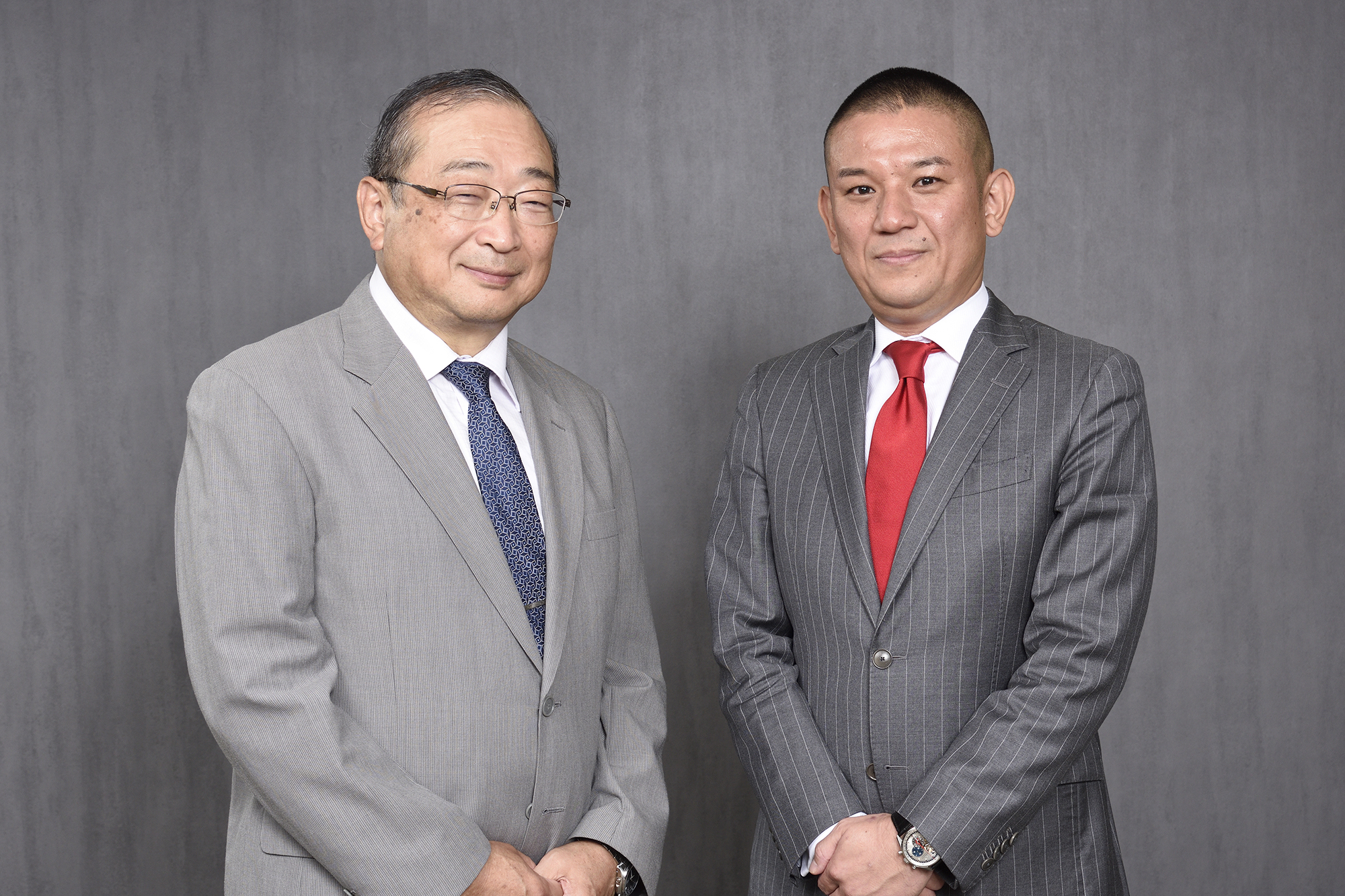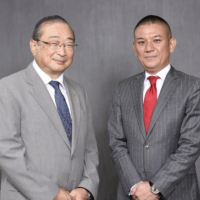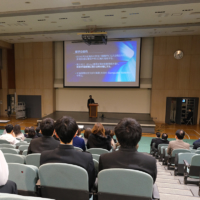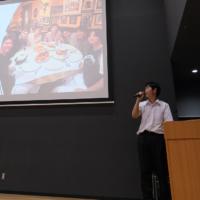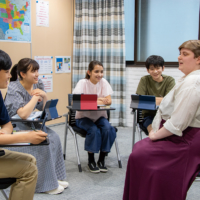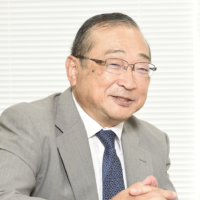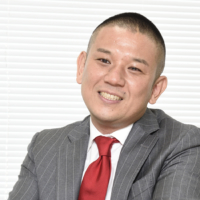Many recently developed tools that facilitate online communication utilize artificial intelligence. More can be done without face-to-face interaction than ever before, but does this change in society decrease the need for youth to learn how to communicate in English or gain hands-on experience through international exchange?
While some jobs are being replaced by artificial intelligence, new professions are being created and diverse career paths lie ahead. There are increasing educational options for young people to achieve their goals. Schools are making efforts to provide support tailored to each student’s needs.
In an interview with The Japan Times, Kaisei Junior and Senior High School Principal Tsutomu Nomizu and Sapix Yozemi Group CEO Toshiro Takamiya shared their thoughts on the importance of English education, as well as the strengths of Japanese education and how it can be improved further.
At a time when artificial intelligence technology is being adopted and services such as ChatGPT can generate human-like text, what is the benefit of learning English for Japanese students?
Nomizu: No matter how advanced machines are, they cannot fully communicate human opinions and emotions. As you pursue your academic path, you will read research papers in English and publish in English. But most importantly, you will speak with researchers from all over the world. Building a rapport through smooth, natural conversations is vital to success in academic and professional fields. For example, professional athletes who succeed in foreign countries constantly strive to use the local language.
Takamiya: English communication skill is a powerful tool that determines the amount and depth of information you attain. Imagine you are a Japanese student studying abroad. One day, while sitting in class, your professor begins a lecture by saying, “This is not in the textbook, but … ” You realize that your English is only good enough to understand what is written in the textbook and struggle to comprehend the most important points of the professor’s lecture. Similarly, ChatGPT may provide you with information already available online, but it cannot surpass human innovation and ingenuity. What you can get out of a person — something new and not yet out there in cyberspace, is invaluable. English is a tool that maximizes your chances of attaining new information.
Nomizu: At international conferences, new ideas and collaborations most often spring from what is discussed outside the agenda, during recesses or parties, rather than the formal lectures. Taking the initiative in such instances and demonstrating leadership in various fields requires high levels of English proficiency.

Studying abroad is one of the most effective ways to improve English communication. How can educators and schools urge more Japanese students to try it?
Takamiya: I think it is necessary to make students realize that the doors are open. By talking to admissions officers at various universities across the world, I learned that many foreign universities want to enroll more Japanese students. Although there is room for improvement in terms of Japanese students’ English ability, their diligence is greatly admired. American universities want Japanese students because they want to achieve a better balance in terms of students from Asian countries. In the case of the United Kingdom, their withdrawal from the European Union has impacted the number of international students, and universities are eager to attract talented students from Asian nations.
Nomizu: At the same time, it is important to ensure that students feel they are receiving the kind of support they need to pursue their academic ambitions. Inspired by one student’s wish to apply to a foreign university, Kaisei set up a committee composed of English teachers as well as educators in other subjects and hired an adviser who specializes in support related to studying abroad. These efforts are aimed at systematically supporting students throughout the entire study-abroad procedure, from filling out their applications to celebrating their acceptance.
Takamiya: Expert advice and support help because the application processes used for Japanese and foreign universities differ in many ways. For example, the things that appeal to readers or audiences in Japan and the United States are quite different, and you need to be able to structure your essay or speech accordingly to convey your message effectively. Applying to schools abroad will be much easier if students can access expert advice.
To maximize the effect of studying abroad, when, where, and how long should Japanese students go?
Nomizu: My answer varies according to each student’s background and purpose. If the goal is to work and live abroad after graduation, I encourage the student to attend a foreign university and earn a degree there. But nowadays, many Japanese universities, including national schools, offer student exchange programs. Students who score above 80 on the TOEFL iBT or hold a B2 in English in the Common European Framework of Reference will have a wider range of universities to choose from. The financial advantage of using student exchange programs is that you can pay tuition only to your Japanese university.
Takamiya: Generally speaking, the tuition of universities in Western countries is higher than that of Japanese universities. For the time being, the current student exchange system works advantageously for Japanese students. I also feel that the best time to go depends on what you aim to gain from the experience. If you want to immerse yourself in the culture and learn from it, the earlier you go, the better.
Spending time abroad at a younger age means you will have a chance to encounter and learn new philosophies in English, whereas if you study abroad when you become older, you will have cemented your opinions; it will only be a matter of translation to express them in English. If your purpose is to polish your expertise, it would be better to go abroad later, after you gain a certain amount of experience in your field. While it may sound quite challenging to study something highly professional in a language that is not your native language, technical terms, unlike conversational expressions, tend to have one-to-one translations, making them easier to master.
Nomizu: Living in a dormitory and sharing your space with an international roommate is also beneficial. Maintaining a good relationship with your roommate inevitably becomes one of your top priorities. Problems only get bigger if you keep silent. You must communicate effectively to resolve conflict. Better English communication skills can be gained as an exchange student — but that doesn’t mean students have to spend their entire university experience overseas. Exchange programs are also a good way to decide whether you want to study abroad for a longer period.

What are your thoughts on spending time away from family by, for example, going to a boarding school for junior and senior high?
Nomizu: At our school, we ask all junior high school students to live with their families and commute. We allow high school students to be away from their families if needed, in which case we recommend that they live in student dormitories where they are well taken care of. All in all, we expect most students to stay with their families, so the situation is different from boarding schools in the U.K. or the U.S., where all students live separately from their families. In those cases, students need a sense of fellowship with their classmates and easy access to a support network and engaging environment.
Takamiya: At U.K. and U.S. boarding schools, students have access to teachers who also live on the premises or other adults who are there to look after the students. Students create new rules whenever necessary, which nurtures their independence. On the other hand, the internet and various communication devices have made it easier for students and their parents to keep in touch, which lowers the hurdles of attending boarding schools.
Looking at other subjects, such as math, what are the major differences between education in Japan and other countries?
Nomizu: The mathematical ability in Japanese junior and senior high schools is higher than the global average. Achievement in mathematics among Japanese high school students who take university entrance exams is also much higher than the American average. Inspired by Japan, other countries in Asia, such as South Korea, China, and those in ASEAN (the Association of Southeast Asian Nations) have been reinforcing their mathematical education in recent years.
Takamiya: In Japanese schools, you must learn formulas first. Once you understand formulas, you then repeatedly use them in exercises. Conversely, the top schools in the U.S. start by solving problems. Through the process of reaching the solution, you uncover the formula behind it. If you have a clear goal, like passing the university entrance exam, the Japanese method is more efficient. At top U.S. high schools, textbooks cover what will be taught at universities, making it possible for those who are good at mathematics to push their studies above and beyond expectations if they possess internal motivation. Those students who just keep on going are the ones who participate in international competitions like the International Mathematical Olympiad.
Nomizu: Indeed, what you do in international mathematics events such as the Olympiad and the Fields Medal is different from what you learn at school in Japan and is extremely high-level. But the question is whether there are enough teachers who can teach at that level if students want to excel beyond that level. To be honest, only some of the top schools in Japan have such teachers; not all schools are blessed with an environment where students can get advice from their teachers.
Takamiya: People who specialize in mathematics in Japan typically choose to become either mathematicians or professionals in the business sector, especially at financial institutions. Becoming a schoolteacher is an option, too, but few Japanese people with doctorate degrees choose that path, whereas in the U.S., many schoolteachers possess advanced degrees.
What should Japanese schools teach and how should they do it?
Nomizu: As educators, I think we are expected to nurture excellent talents who can contribute academic excellence to higher education in the future. But this isn’t determined by how much knowledge a student can acquire. It is determined by one’s ability to examine various perspectives to create appropriate solutions. For example, in contemporary Japanese writing classes, we emphasize discussions among students to gain a deeper understanding based on the premise that all students come from different backgrounds and have varying perspectives.
Takamiya: I watched the U-18 Baseball World Cup recently and felt that all the Japanese high school baseball players are well-trained and work as a team. Every one of the players has been trained to reach a certain level, and the collective power made it possible to win the title. Other teams, on the other hand, seemed to have a greater variety of abilities. Some players had unrefined strength and limitless potential. Finding and nurturing such exceptional abilities could be something that Japanese teams need to do more, and the same can be said of Japanese schools.
Nomizu: There is also an underlying expectation for schools to foster students who can become independent adults with an adequate set of social and leadership skills. Indeed, it is an important skill in today’s world to be able to listen to minority opinions and put them together to reach a compromise. In our school, students take the initiative in all school events, including school trips, sports days and the school festival. Teachers are only there to give them advice whenever students consult them. Students create the rules and systems themselves. Through such experiences, students become more responsible and learn what it is like to run an organization effectively.

What is the main quality of a ‘good school’?
Takamiya: I think that pride, spirit, and a sense of community among students and alumni can be one of the indicators of whether a school is a “good” or not. To build these values, appreciating diversity and ensuring a feeling of belonging and acceptance is important so that all students can feel confident even if the path they choose is unique.
Nomizu: We encourage students to consider attending schools with alumni currently working in their chosen field, which usually includes, but is not limited to, academia, politics and economics. These areas are of particular interest to Kaisei students. However, I want to emphasize that schools should aim to be more than “good schools” and constantly pursue international recognition. Educators in Japan will continue to provide students with as much support as possible to study abroad.
Tsutomu Nomizu

Earned his master’s in engineering from the University of Tokyo and served as a researcher at Power Reactor and Nuclear Fuel Development Corp. Earned his doctorate in engineering at Nagoya University before a stint as researcher at Harvard Medical School from 1990 to 1991.
Has held many positions at Nagoya University since 1992 in the Graduate School of Engineering and sections related to student exchange programs. Has been principal of Kaisei Junior and Senior High School since 2020.
Toshiro Takamiya

Graduated from Keio University in 1997 and worked for Mitsubishi UFJ Trust and Banking Corp. Joined Takamiya Gakuen Yoyogi Seminar in 2000. After earning a doctorate in education from the University of Pennsylvania, he was appointed CFO at Takamiya Gakuen.
Has been CEO of the Sapix Yozemi Group since 2009, engaging in the education of primary, middle and high school students with a specific focus on entrance examinations. He is a father of three.
This page is sponsored by Sapix Yozemi Group.



